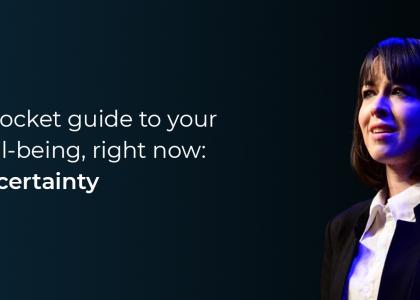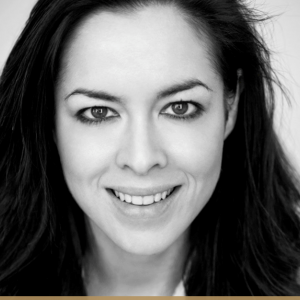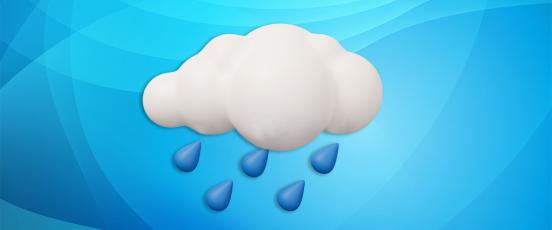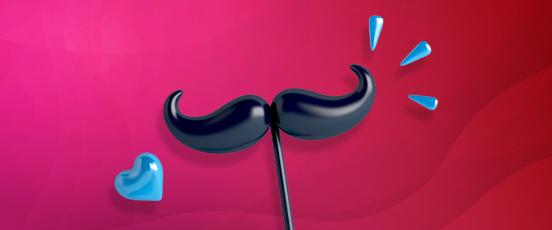6 April 2021
A pocket guide to your wellbeing right now: Uncertainty

This is the last in a three-part series of blogs where I look at the central factors that impact our wellbeing in this time of crisis: Isolation, Stress, and Uncertainty. Here we are discussing uncertainty.
In this series, I have been looking at what is happening in our brain, how they affect us, and how with this understanding we can create a personal workplace wellbeing strategy to improve our wellbeing on this last stretch.
In part one we took a look at the impact of isolation. Luckily that is one feature of this crisis that will in time diminish for most of us. So in part two, we turned to tackle stress. For whilst it has been a long year of high stress when we start to return to work, the stress will not be over, it may even for a while increase as we readjust and face new worries on safety in the workplace. In part three we end on another pervasive feature of modern life, which whilst heightened at present is something that always has and always will exist around us, uncertainty.
Your brain on uncertainty
Now let's be honest uncertainty is not a positive word (although I’d argue that we need to change that). The very word itself is enough to start you shifting uncomfortably and induce just that edge of anxiety. This is because our brains hate uncertainty and rail against it. But, if you can master your mind and learn to embrace it you can access a cognitive state of high agility, creativity, and tap into a world of opportunity.
Now I guess you may well ask that if your brain is working in your best interest as it is, after all, part of you, why does it set off all the alarm bells and make me feel uncomfortable when uncertainty prevails? Well because unfortunately, we didn't evolve as fast as the world around us. It evolved in a world gone by where the threats to your life were fast, frequent, and physical (tigers rather than climate change). Its remit is to keep you alive and often that means not taking risks, despite risks being necessary for real creativity and for the adoption of new ideas and behaviours. Your brain is trying to keep you alive, it doesn't care about societal progression. Being creative is a do-or-die card in its primitive thinking. It only activates that at the 11th hour.
So it’s trying to make you safe but how can it do that when it doesn't know what’s going to happen? Waiting in the face of uncertainty can feel like torture. The brain, and so us, prefer to know an outcome one way or another to take the edge off. In fact, there are numerous scientific studies that show that you're calmer anticipating pain than anticipating uncertainty because at least pain is certain.
When certainty is questioned, your brain goes haywire in an attempt to spur you to action and get you to safety. Your brain is constantly scanning and updating your world, making judgments about what's safe and what isn't. In the face of uncertainty, it starts making assumptions trying to predict what will happen, and just as we discussed in part two around stress, the brain errs on the side of caution and our great negativity bias is once again amplified. In other words, we put more weight into the possible negative outcomes rather than the positive ones even if they are no more certain to happen. The brain would rather you got that wrong and played safe than take a risk and it all backfires.
Within the brain, uncertainty is a key driver of stress and anxiety, our amygdala (the emotional part of our brain) freaks out, it goes into overdrive. It takes control over the more rational prefrontal cortex. Once again this anxiety is draining, it impedes cognitive agility and further ramps up your negativity bias focusing on the worst outcome possible increasing, even more, your stress. The problem is, you don't see life as it really is; you see life as you think it is. If your mind is made up before each new experience, you become unteachable and can no longer learn and grow. And if your mind is made up that what will happen will be bad, then you will never take risks and simply limit yourself.
In short, our default safety state, amongst the anxiety of uncertainty, is playing safe: fixed inflexible thinking, with the brain making decisions on predetermined, normally negatively biased outcomes. But it doesn’t have to be this way.
Accepting uncertainty
Accepting uncertainty has been known through the ages in many forms, also known as the Unmaking your mind, or the Mastering of your mind. It is widely acknowledged in science as a state that leads to great opportunity, unleashed once you can learn the skill of letting go of the need for certainty. Once you do this you disarm your high alert safety system to disband anxiety, empty your mind of expectations, dissolve its negativity bias and open yourself up to the other option for your mind, to be fully present, and start to get creative about your situation and the future you want to inhabit. Buddhists call it the "beginner's mind" when you're open to many possibilities instead of closed to all but one.
Now it's of course not easy to ignore the survival instinct of your brain. From the macro-level of the pandemic, climate change, social and political unrest to the personal level of job uncertainty, illnesses within families and various levels of social isolation: there's a lot of uncertainty. Any and all of these contribute to driving anxiety and returning us to the default basic rigid state that our brain prefers instead of a creative leaping into the unknown.
But fighting uncertainty rather than accepting it is exhausting. To try and predict an unpredictable future is a huge resource and brain drain. We have to learn to accept uncertainty. It's the basis of my mother's favourite phrase, ‘lean into the discomfort.’ Become accustomed to that place and your brain no longer fights it with high anxiety. It is the basis of Buddhist meditation, CBT, and cognitive reframing. Because once you stop feeling anxious in this place your negativity bias goes down and you are at more liberty to start to focus on more positive outcomes and innovative solutions. And that is a sure-fire first step to creating them for yourself.
And even better, because of neuroplasticity (the ability for after time your brain to build new pathways) after a while, your brain stops freaking out and limiting you. Your productivity, your creativity, your ability to adapt and innovate starts to increase again - plus ridding yourself from anxiety means you have a lot more free brainpower! Spending time reframing uncertainty isn't just a fluffy cure, it will actually start to change the wiring of your brain, physically. It opens you up to opportunity around you, the ability to see it, respond in an open way, and clears the cognitive interference. It actively widens your attention and creativity; it is a place of growth.
Yale University neuroscientists have proven that you learn more in situations that are uncertain but where you remain calm than those in which you have certainty and panicking. When you enter a novel environment and are calm you absorb more around you. In a predictable setting, your brain doesn't need to do as much. It becomes a couch potato of sorts. But when situations change, it works harder. Again these findings echo the importance of sticking your neck outside your comfort zone to cultivate a growth mindset to succeed and prosper. In other words, work at embracing uncertainty.
A time of upheaval but a time of growth
So to conclude, I hope you will take away the following. As we discovered in part one, we must tackle the physical and mental impact of isolation by prioritising connection: digital or physical. We must also, as part two explored, better understand, accept and create conversations around stress and have empathy towards others at this time because stress is wearing on our bodies and draining on our brains. It’s not going away, pandemic or no pandemic, but you can start to recognise and counteract its effects building a long term and hugely helpful resilience. And lastly, the world is uncertain, perhaps now more than never, but within that, if you can master a calm acceptance, you will find opportunity and the cognitive creativity to thrive.
Closing thoughts...
Since first delivering the keynote that this three-part blog series is based on in January 2021, I have been asked two things which I thought I’d throw in for you here.
1. Where can I find out more? I cannot recommend highly enough two places and people to find out more.
On Isolation and Stress - Mindapples is a great company run by Andy Gibson
On Uncertainty - If you do one thing for yourself or your team this year, book yourself a place onto Sam Conniff, the award-winning social entrepreneur’s, new workshop/ interactive documentary series The Uncertainty Experts. Part lived experience, part evidence-based science, you will come out with a retrained mind able to thrive in uncertainty.
2. Is there not a fourth horseman? People have pointed out that my talk and blog series discussed the ‘three horsemen’ of the pandemic: isolation, stress, and uncertainty. And yet there were actually four original horsemen. The fourth is homeschooling, hopefully, that is over now, but regardless not even the greatest neuroscientists can help you with that one, good luck!



